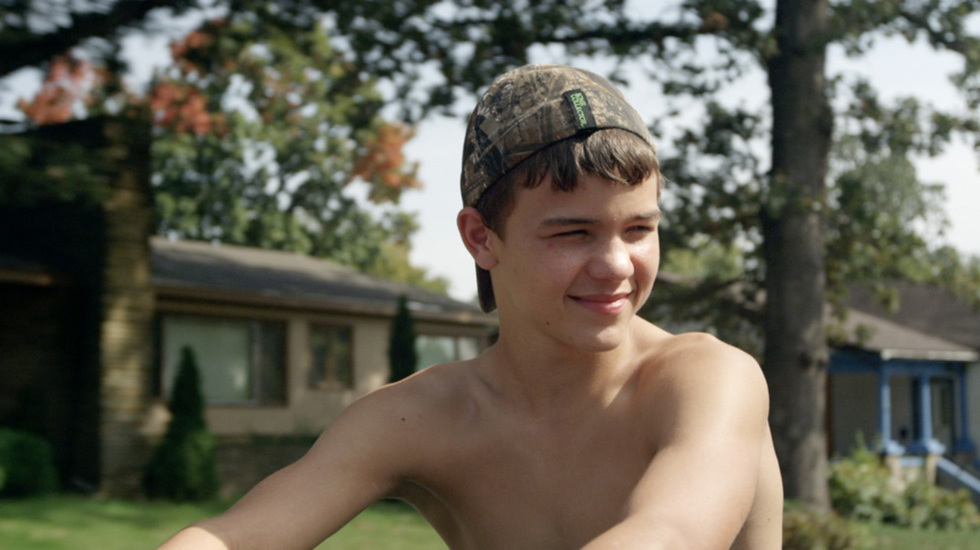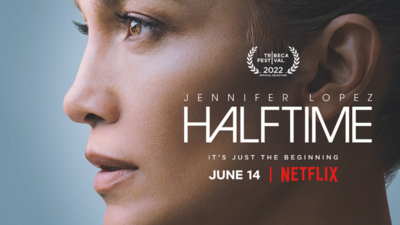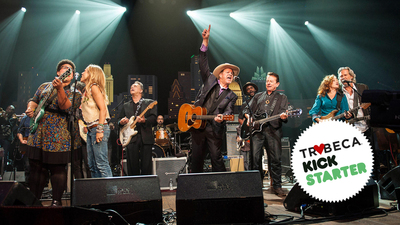
BY ZACHARY WIGON |
Tracy Droz Tragos On The Specific Challenges Of 'Rich Hill'
Tracy Droz Tragos's new doc shines a light on lives that often go unseen.

One of the most well-received docs at this year's Sundance Film Festival, Tracy Droz Tragos and Andrew Droz Palermo's (they're cousins who co-directed) Rich Hill hits theaters today via The Orchard, one of the increasingly small number of docs that manage to find a theatrical release in the uber-competitive contemporary marketplace that is indie film today. Rich Hill is an intimate, visually striking portrait of three young boys - and their families - in the town of the film's title. Ironically named to a truly uncomfortable degree, Rich Hill is a jarringly poverty-stricken community, and the filmmakers take as their subjects three young boys - Andrew, Harley and Apache - trying to make the most of their lives despite the fact that their options in life seem severely limited by circumstance.
The filmmakers also survey the boys' families and the community they all share, adopting something of a painterly eye as they portray the rural landscape with striking compositions, infusing their images with a resolute sadness and resignation. However, the film is hardly a romanticization of poverty - it's far too intelligent and sympathetic toward its characters to fall into that trap. I was able to speak with Tragos recently about the project.
We were very concerned with making sure that every image we had was part of the experience of these characters' lives, that we represented their natural experience.
Tribeca Film: I was so impressed by how beautifully shot this film was. Often in docs the visual considerations fall by the wayside, but this film really emphasized the visuals. How did that approach come together?
Tracy Droz Tragos: It started very early in our conversations about how we wanted to give this community we loved a different treatment from what we'd seen families in rural America get. Often it's Honey Boo Boo or Duck Dynasty, it's not very thoughtful or respectful. We knew that we wanted to create something different. Andrew and I have a great love for the community and we appreciate the beautiful aspects of it, and wanted to take an audience there. We chose to shoot on a RED Scarlet, which was a big gulp, not a lot of docs shoot on such a high-end camera, but we knew the images would be beautiful. Andrew is an incredibly talented cinematographer.
Tribeca Film: The manner in which the environment in the film is depicted felt really respectful, and it could have been so easy to turn the film into something that was really extreme, sensationalized. How did you approach conveying the poverty without sensationalizing it?
TDT: Thank you for saying that - it was our intention not to do that, and we talked a lot about it. There was a fine line. We didn't include all the hard stuff because some stuff felt like it was exploitive, it was going too far, it felt like certain things would have been unfair to include. We were very concerned with making sure that every image we had was part of the experience of these characters' lives, that we represented their natural experience.
Tribeca Film: How did you forge the initial connections with your subjects?
TDT: A lot of it was that my grandmother had been a grade-school teacher in the community for 30 years. My grandfather worked for the post office, so a lot of people knew him. They were respected members of the community. So it was on their good name that we made the connections with the subjects. I also made a film about my father, who was from that town, and a lot of people in town had seen that film and felt comfortable with me. There was a lot of trust from the get-go.
Tribeca Film: Do you feel, as a documentary filmmaker, that some degree of personal connection to the subject matter is integral to earning that trust?
TDT: I think it certainly helps. When I approach projects I ask myself, why is this necessarily my story to tell? Would this story be told if I didn't tell it? I don't think it's a requirement - there are films I'm exploring now that I don't necessarily have a personal connection with - but in the filmmaking process you have to find a personal connection in order to be able to immerse yourself in all the work required to make the film.
The sting in these families is their sense of isolation, the idea that they're invisible, perhaps forgotten.
Tribeca Film: What was the subjects' reaction to seeing the film? Have they seen it?
TDT: Yes. It was very important for us to share it before audiences saw it. We really wanted them to feel like we had done them right. So yes, they saw it, their reaction was far better and more appreciative than I could have ever dreamed or hoped for. It was so gratifying that they felt we had done them right. Even Apache's mom is one of the film's greatest supporters. She talked about how we shot the film in a really trying time in her life and sometimes it makes her uncomfortable, but in a good way, and she talked about her capacity for change, how maybe she can have hopes and dreams.
Tribeca Film: The scene where she talks about how her hopes and dreams faded as soon as she had kids - and she had kids at such a young age - that scene was extremely moving and tough.
TDT: It's intense to shoot something like that. One of the things that we found is that the families in the film wanted to share their stories, they wanted to be heard - this was ultimately something that they were collaborators in. It was hard, but what feels good to me now is that I think she sees how young she is - she's only 34! She's not too old to have hopes and dreams. In the moment where she is now, as someone who's participated in a film, who can look back on and reflect on her life - she can recognize it's not too late. They all came to Sundance, they all came to True/False, they've all participated in the experience of sharing the film with audiences, which is a wonderful experience, to share something so intimate with people.
Tribeca Film: You really get the sense that the subjects need to tell their story, to feel like their story matters - you get the sense that the world has shut these people out, that the world has told them that they don't matter at all.
TDT: That's why we wanted to tell this story - we wanted to give a voice to families like these. It's an intimate story about these three boys and their three families, but in the process of shining a light on them, we hope more awareness will be raised about more communities like Rich Hill. Rich Hill is very average, there are so many towns like it. The sting in these families is their sense of isolation, the idea that they're invisible, perhaps forgotten. When you're so isolated and maybe your car breaks down and you don't have enough money for gas, you're really alone. To be heard and to have your story out there means that you're being seen and maybe you do belong somewhere, in a way that perhaps you haven't belonged before.

